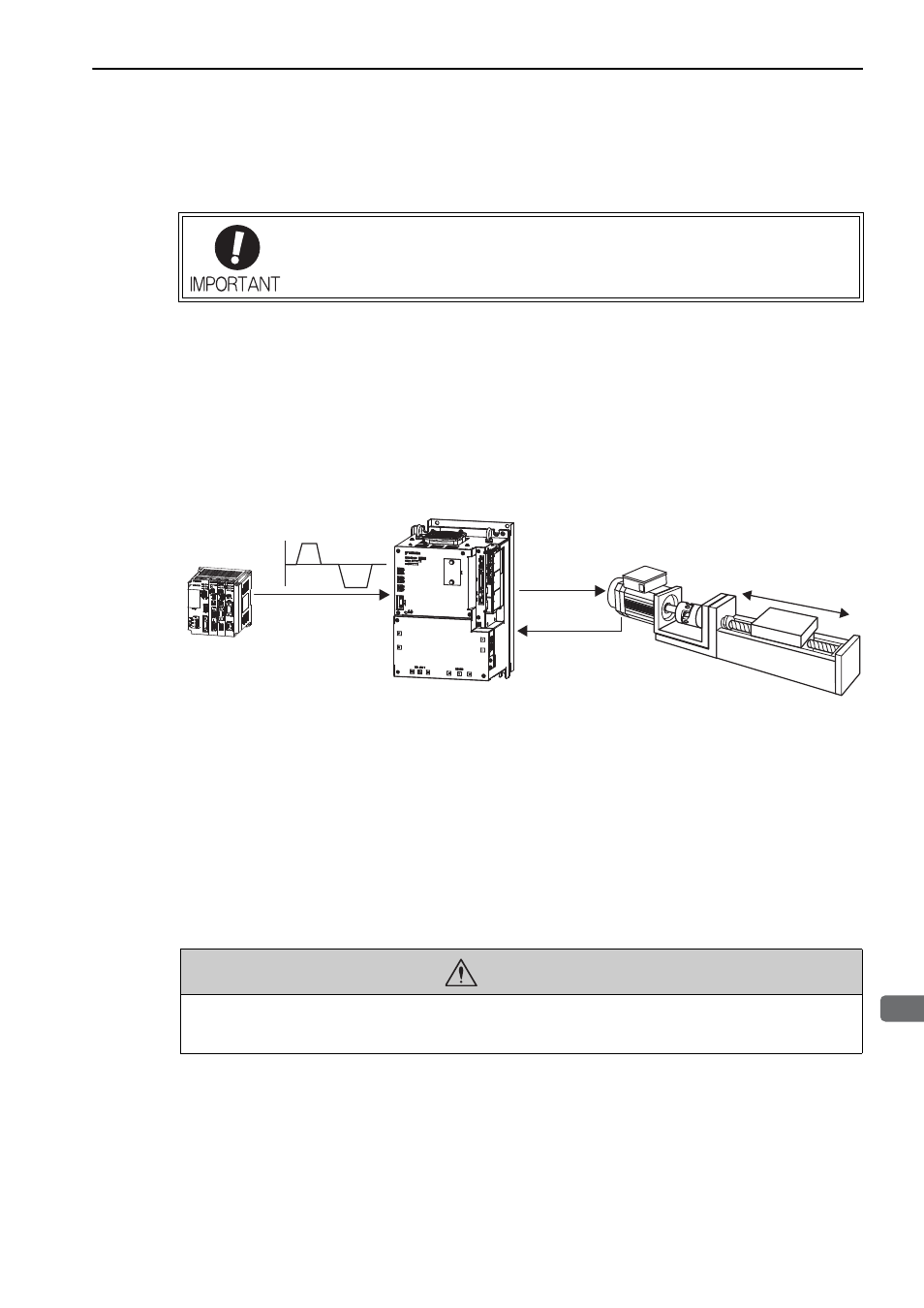4 advanced autotuning by reference (fn202), 1 advanced autotuning by reference, Caution – Yaskawa Sigma-5 Large Capacity Users Manual: Design and Maintenance-Command Option Interface User Manual
Page 186: M-ii

5.4 Advanced Autotuning by Reference (Fn202)
5-27
5
Adjustm
e
nts
5.4 Advanced Autotuning by Reference (Fn202)
Adjustments with advanced autotuning by reference are described below.
5.4.1 Advanced Autotuning by Reference
Advanced autotuning by reference is used to automatically achieve optimum tuning of the SERVOPACK in
response to the user reference inputs from the host controller.
Advanced autotuning by reference is performed generally to fine-tune the SERVOPACK after advanced auto-
tuning of the SERVOPACK has been performed.
If the moment of inertia ratio is correctly set to Pn103, advanced autotuning by reference can be performed
without performing advanced autotuning.
Advanced autotuning by reference performs the following adjustments.
• Gains (e.g., position loop gain and speed loop gain)
• Filters (torque reference filter and notch filter)
• Friction compensation
• Anti-resonance control
• Vibration suppression
Refer to 5.4.3 Related Parameters for parameters used for adjustments.
For information on how to input operation references, refer to the manual of the connected command option
module.
• Advanced autotuning by reference starts adjustments based on the set speed loop
gain (Pn100). Therefore, precise adjustments cannot be made if there is vibration
when starting adjustments. In this case, make adjustments after lowering the speed
loop gain (Pn100) until vibration is eliminated.
CAUTION
• Because advanced autotuning by reference adjusts the SERVOPACK during automatic operation, vibra-
tion or overshooting may occur. To ensure safety, perform advanced autotuning by reference in a state
where the SERVOPACK can come to an emergency stop at any time.
SERVOPACK
Movement
speed
Host controller
Reference
Response
Reference
Travel distance
M-II
